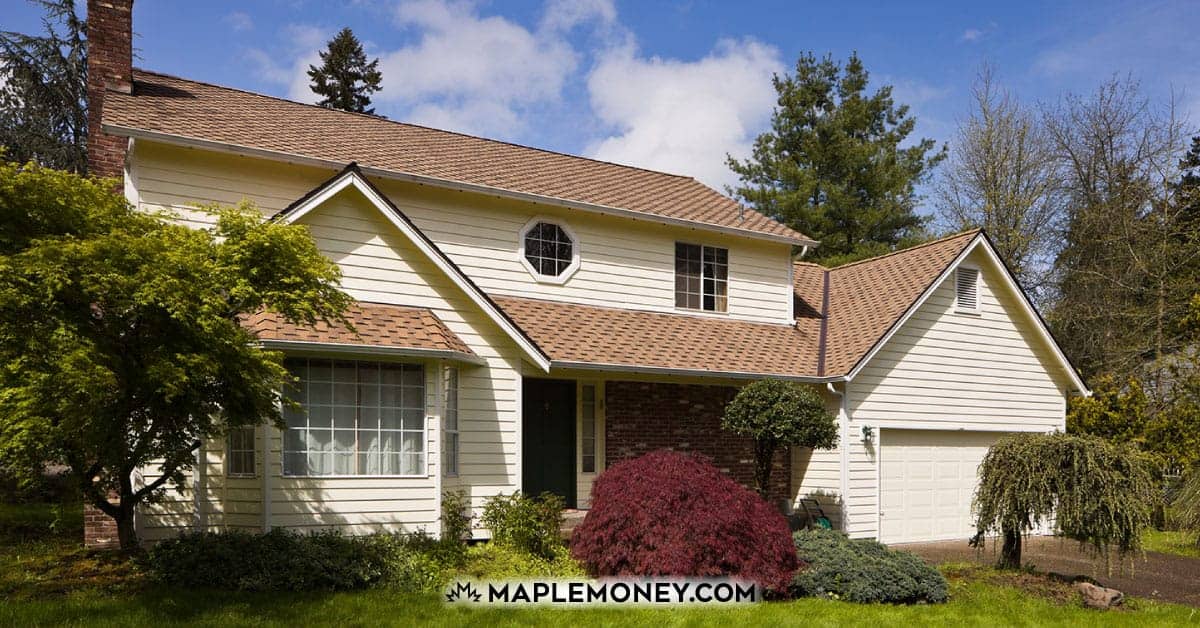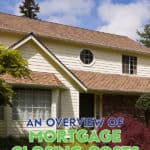An Overview of Mortgage Closing Costs In Canada

Before buying a home, most Canadians know that they’ll need to come up with a down payment of at least 5% or more. But there are several other upfront expenses you might not have thought of – they fall under the category of closing costs, and they can be significant.
How Much Should I Budget for House Closing Costs?
As a general rule of thumb, you should budget at least 1.5% of the house purchase price for closing costs. For example, if you’re purchasing a house for $300,000, you should have at least $4500 available for closing costs. You’ll need to have 1.5% available for closing costs to qualify for a CMHC-insured mortgage.
But what if you’re buying AND selling a house at the same time? Because two transactions are happening, your closing costs will be higher. In that instance, I recommend that you have at least 4-5% available, with access to further emergency reserves if required.
Now, you may be wondering why you would need as much as $15,000 for closing costs on a $300,000 house purchase, especially if your lawyer has told you that their fee is only $1000. Legal fees only make up part of the overall closing costs. To help you better understand the full cost, here is a breakdown:
Breakdown of Mortgage Closing Costs
From legal fees to land transfer tax, here is a list of closing costs you can expect when buying a home.
Legal Fees
When you buy or sell a house, a real estate lawyer must handle the transaction, and of course, there are fees involved. While the price of hiring a lawyer can vary, lawyer fees can range between $500 and $1000. Real estate lawyers perform a few essential duties. They pull any necessary title searches and advise any potential defects, ensure that your legal documentation is completed and filed correctly, and work with your lender to facilitate the financial transaction.
Land Transfer Tax
Depending on where you live, you are subject to something called a land transfer tax anytime you buy a resale home (new build homes are typically exempt). The amount is included in the homebuyer’s closing costs at the time of possession.
The amount of land transfer tax that you pay is a percentage of the home’s purchase price. Tax rates vary between provinces, so you need to check the percentage where you are buying.
For example, here are the tiered land transfer tax rates for Manitoba:
Eg. Manitoba Land Transfer Tax Rates:
- Up to $30,000 0%
- $30,001 to $90,000 0.5%
- $90,001 to $150,000 1.0%
- $150,000 to $200,000 1.5%
- Amounts over $200,000 2.0%
Let’s say you purchased a $325,000 home in Winnipeg, Manitoba. The province will calculate your land transfer tax amount as follows:
Fair Market Value of Home $325,000
- $30,000 $0
- $60,000 X .5% $300
- $60,000 X 1.0% $600
- $50,000 X 1.5% $750
- $125,000 X 2.0% $2500.00
Total LTT payable $4,150.00
As you can see, the amount of land transfer tax you pay can be significant. If you live in Toronto, the situation is awful for homebuyers, who have to pay two land transfer taxes: one to the province and another to the City of Toronto. When you factor in Toronto housing prices, the costs are downright ridiculous.
Unlike Manitoba and Ontario, Alberta doesn’t have a land transfer tax, although they do have a land transfer administration fee.
Survey Fee
Most mortgage lenders will require a land survey produced by the seller for the homebuyer if one exists. A land survey maps out a property’s boundaries to know where your property ends, and your neighbour’s begins. If there is no survey available, you may be forced to pay for a new one as the homebuyer. The cost of a land survey can range from $500-$1500.
Appraisal Fee
If you’re getting a conventional mortgage, chances are your lender will want to order an appraisal on the home you’re buying. They want to know that the property they are securing a mortgage against is worth the price you’re paying for it. A full, in-person appraisal is $300 or higher.
Building Inspection Fee
You should never enter an agreement to buy a house before having a professional home inspection. A home inspector can identify issues you may not notice simply by walking through the house with a realtor – things like mould, water damage, faulty wiring or plumbing, or inadequate insulation.
They can also let you know what repairs you can expect to incur after moving into the home. The last thing you want is to find out that your house needs a new roof or furnace right after moving in. The cost of a home inspection is around $250-$500.
When you’re buying a home in a competitive housing market, you may feel pressured to waive the home inspection to improve the chances the seller will accept your offer. I strongly recommend against doing this. A building inspection should be non-negotiable.
PST on CMHC Premium
If you’re taking out a CMHC-insured mortgage to purchase your home, the CMHC premium is calculated as a percentage of the overall mortgage amount. But the CMHC fee itself is almost always financed along with the mortgage. However, the Provincial Sales Tax on the CMHC premium is included in the closing costs and must be paid upfront. Your lawyer will collect the amount and submit it to CMHC.
For example, if you have a CMHC premium of $8500, and the PST where you live is 7%, $595 will need to be added to your house closing costs.
Property Taxes
You may be required to pay property taxes before the possession date. Let’s say you buy your house in June. If the seller has already paid property taxes in full for the entire year, you will need to reimburse them for the period you will be living in the house (June-December). The lawyer will usually include the amount as an adjustment rather than a cash payment.
GST (or HST) on New Home Purchases
Remember how I mentioned that land transfer taxes didn’t apply to newly built homes? Well, that doesn’t mean that you can escape paying tax when closing on new construction. Far from it, actually. New home purchases are subject to GST (or HST, depending on which province you live in). If the home builder has included the GST into the purchase price, you may finance this amount with the mortgage. If not, it becomes part of your closing costs.
Let’s say you live in BC, and you’re purchasing a brand new condo for $600,000. With a GST of 5%, you’ll be responsible for paying $30,000 upfront.
You may be able to claim a partial GST rebate on your income tax, depending on the purchase price of the property and whether or not it’s your primary residence.
Fire Insurance
When you take out a mortgage for the purchase of a home, your lender will require that you obtain fire insurance on the house at the time of closing. Fire insurance, otherwise known as homeowner’s insurance, protects not only the structure of your home in case of damage but also covers your personal belongings.
Fire insurance has to be in place before closing, but the cost is ongoing and paid annually or in monthly installments.
Moving Costs
While it isn’t a closing cost per se, many home buyers overlook the cost of moving from their previous residence to their new home. Of course, moving costs can vary widely, depending on the size and distance of your move. If you’re relocating for a job with the same employer, they may cover your moving costs. If not, make sure you budget accordingly.
Final Thoughts on Mortgage Closing Costs
I’ve provided you with a snapshot of what you might need to pay on mortgage closing day, remember that not all of these closing costs apply in every situation. For example, you may not find yourself subject to land transfer tax or paying GST on a property if the property isn’t a new building. But many of the closing costs listed do apply in most situations. Legal fees, down payment, a home inspection, or appraisal fee are standard up-front expenses you can expect with a home purchase.
That’s why it’s always best to err on the side of caution when estimating that your closing costs will be. At the very minimum, expect to pay 1.5% of the purchase price in addition to the down payment. If you’re also selling a home, aim for 4% to 5%.


